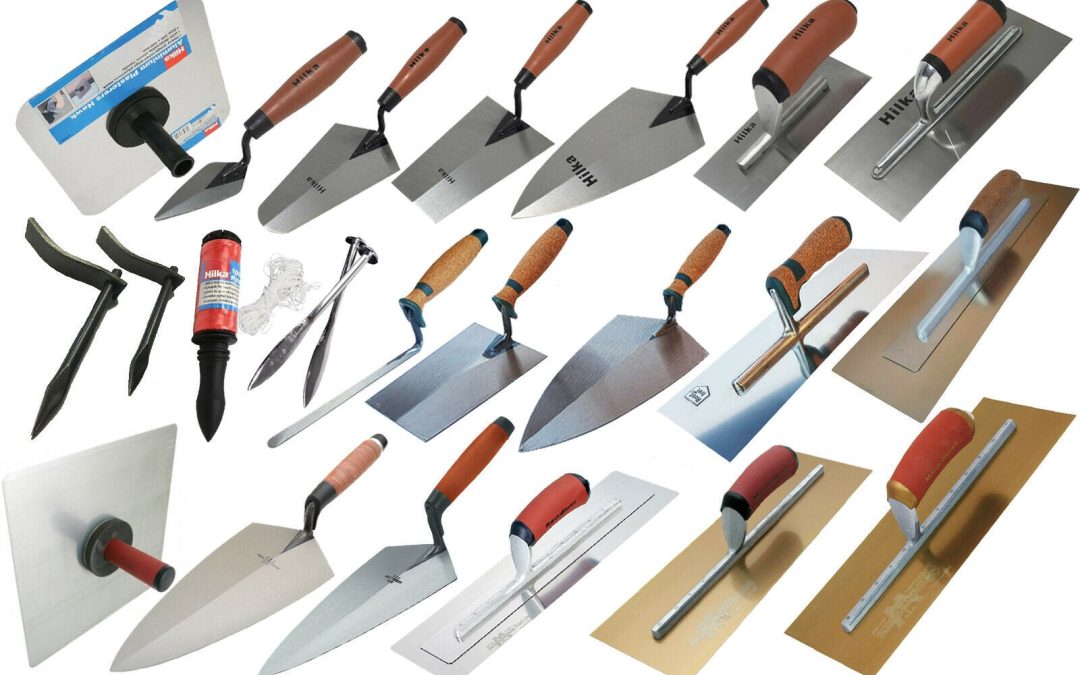Masonry projects necessitate a range of tools, with the masonry trowel being one of the utmost essential instruments. A masonry trowel is a handheld tool used by masons and bricklayers for spreading, leveling, and shaping mortar or other materials during construction projects. We will explore different types of masonry trowels, their specific purposes, and how they contribute to efficient and precise masonry work.
Pointing Trowel:
The pointing trowel, alternatively referred to as a margin trowel, possesses a small-sized structure with a blade that comes to a pointed tip. It is primarily used for intricate and detailed tasks such as pointing, patching, or repairing mortar joints. The pointed tip allows for precise control and accuracy in accessing tight spaces or corners.
Brick Trowel:
The brick trowel is the most commonly used trowel in masonry work. It features a rectangular-shaped blade with a slightly curved end. Brick trowels are specifically designed for tasks like spreading mortar, lifting and setting bricks, and shaping mortar joints.
Gauging Trowel:
A gauging trowel is a compact-sized trowel featuring a rounded tip. Its primarily used for mixing small amounts of mortar or other materials. The rounded tip allows for efficient mixing in a small container or a gauging board. Additionally, the gauging trowel can use for applying or smoothing small amounts of mortar or adhesive.
Finishing Trowel:
The finishing trowel, commonly referred to as a float trowel, serves the purpose of achieving the ultimate smoothness and refinement of concrete or plaster surfaces. It features a rectangular blade with rounded corners. The finishing trowel helps achieve a smooth and level finish on walls, floors, or other masonry surfaces.
Notched Trowel:
Notched trowels have a serrated or notched blade, typically made of steel or other sturdy materials. These trowels specifically design for applying adhesive or mortar with consistent ridges or grooves. The size and spacing of the notches can vary, allowing for different adhesive or mortar thicknesses.
Conclusion:
Masonry trowels are indispensable tools in the construction industry, enabling masons and bricklayers to achieve precise and efficient results. Understanding the different types of masonry trowels and their specific purposes is crucial for selecting the right tool for each task. Whether it’s the pointing trowel for intricate joint work or the finishing trowel for achieving a smooth surface, having the appropriate trowel ensures high-quality masonry work. This will enhance your efficiency and craftsmanship, yielding superior results.

